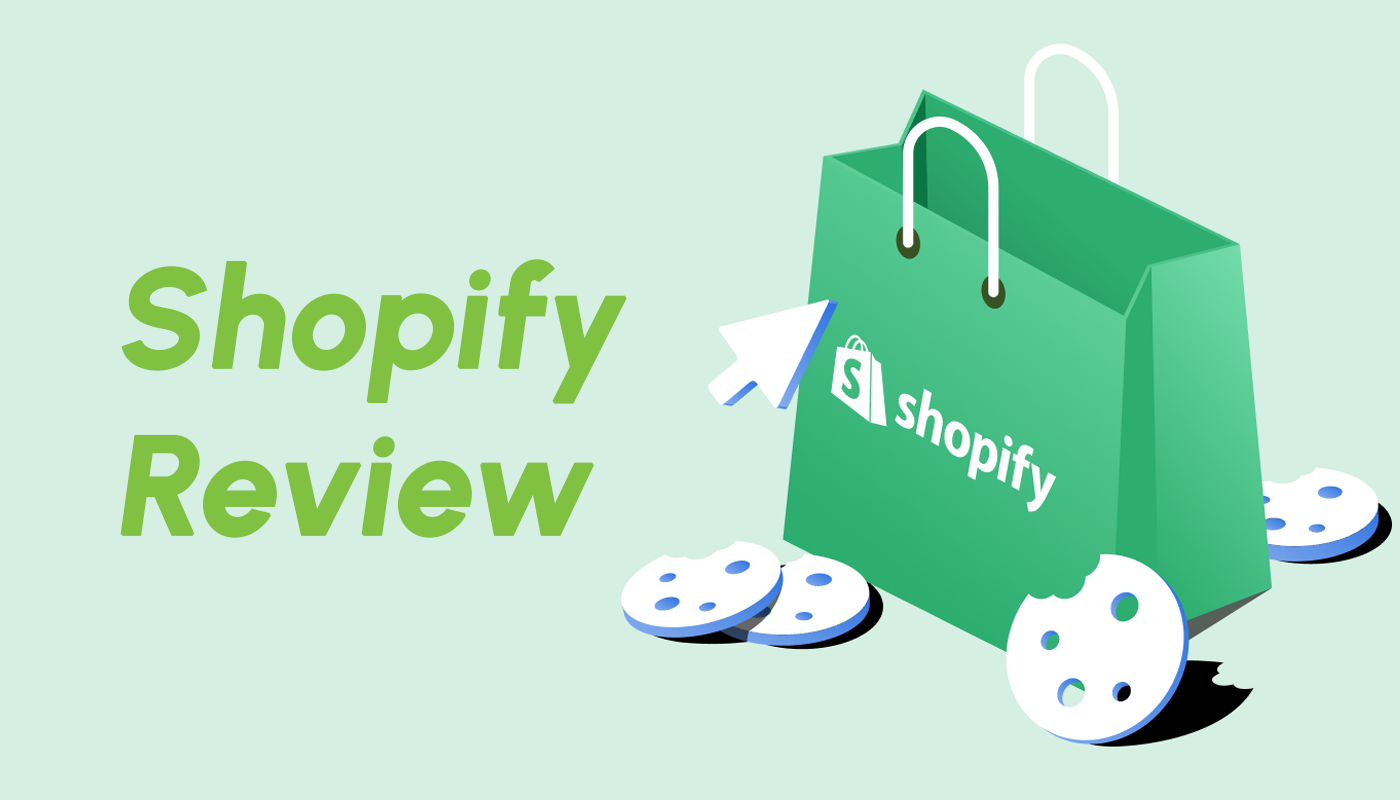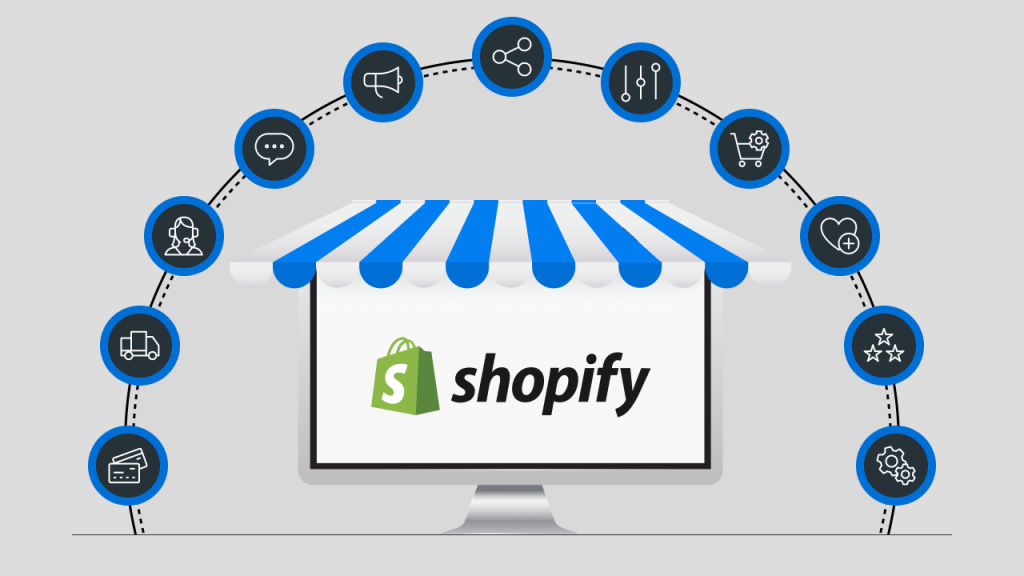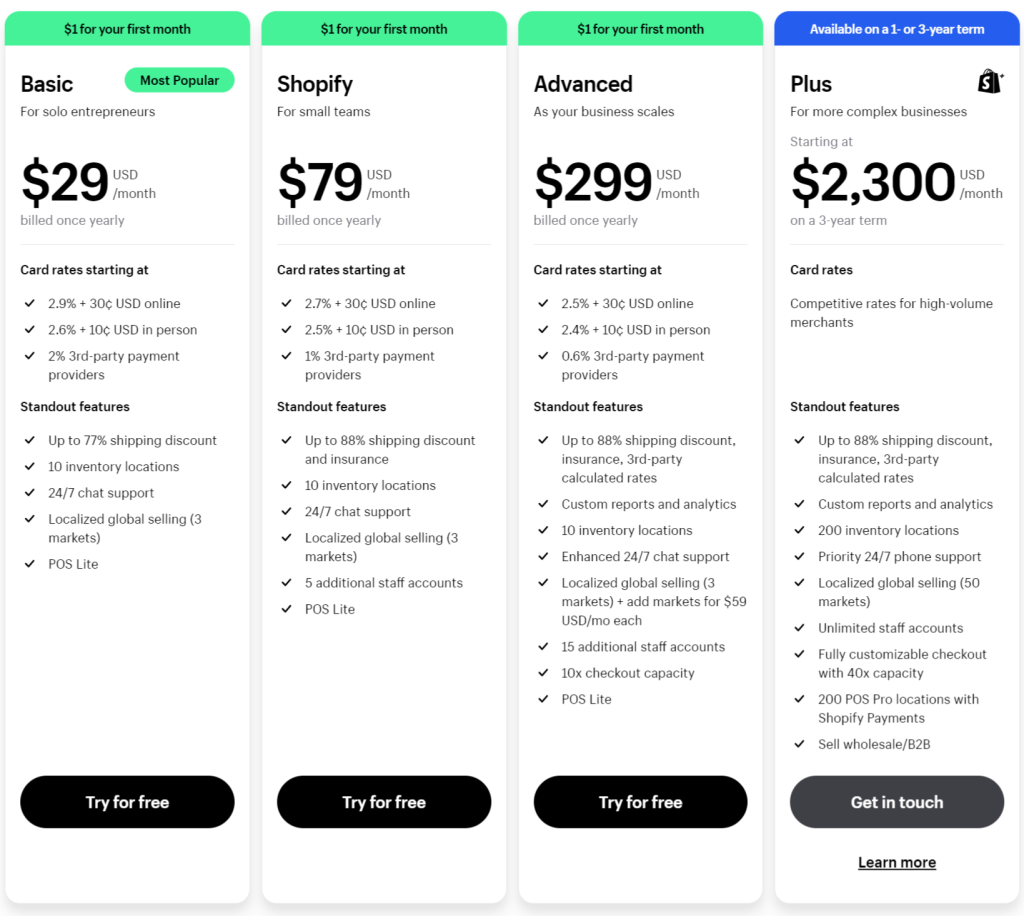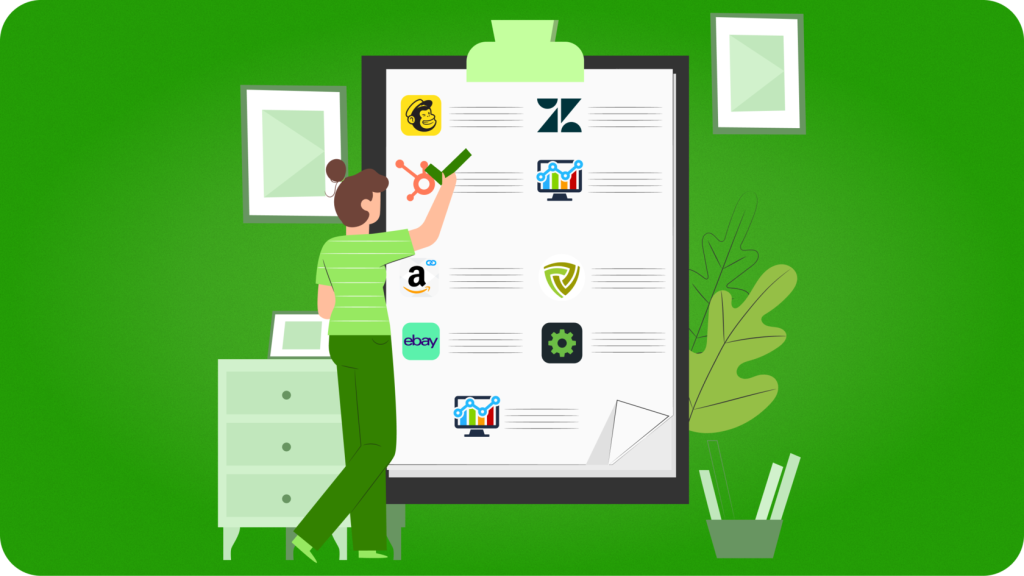
Shopify Review: Using Shopify for Your Online Store
What is Shopify?
Shopify is an e-commerce platform that enables businesses to create and manage online stores. Founded in 2006, Shopify has become one of the leading solutions for entrepreneurs and businesses looking to sell products or services online. With Shopify, users can easily set up customizable storefronts, manage inventory, process payments, and track orders, all from a centralized dashboard.
The platform offers a wide range of features and tools designed to make it simple for users to launch and scale their online businesses. This includes customizable templates and themes for designing the storefront, a secure payment gateway for processing transactions, and built-in marketing and analytics tools for driving sales and tracking performance.
Shopify caters to businesses of all sizes, from small startups to large enterprises, providing scalable solutions to meet their needs. Whether selling physical products, digital downloads, or services, Shopify offers the flexibility and functionality required to succeed in the competitive e-commerce landscape.
Shopify empowers entrepreneurs and businesses to create professional online stores and reach customers worldwide, making it a popular choice for anyone looking to enter or expand their presence in the world of e-commerce.
How Does Shopify Work?
Shopify is a comprehensive e-commerce platform designed to simplify the process of creating and managing online stores. It operates as a Software as a Service (SaaS) solution, meaning users can access and manage their stores through a web browser without the need for complex installations or setups.
To get started with Shopify, users sign up for an account and select a subscription plan that suits their needs. Once registered, users gain access to a user-friendly dashboard where they can customize their store’s design using a wide range of templates and themes.
Adding products to the store is straightforward, with users able to upload product details such as images, descriptions, prices, and inventory levels. Shopify also supports the management of product variants, making it easy for businesses to offer different options for their products.
To facilitate transactions, Shopify integrates with various payment gateways, allowing users to accept payments securely through credit cards, PayPal, and other methods. When a customer makes a purchase, Shopify automatically processes the order, adjusts inventory levels, and sends order notifications to the user.
Shopify also provides built-in marketing tools to help users attract customers and drive sales. This includes features such as search engine optimization (SEO), email marketing campaigns, and discount code creation.
Furthermore, Shopify offers robust analytics and reporting features, enabling users to track sales performance, monitor website traffic, and gain insights into customer behavior. This data allows users to make informed decisions to optimize their store’s performance and grow their business. Shopify’s intuitive interface, extensive features, and reliable support make it a popular choice for businesses looking to establish and grow their online presence.
Shopify Features
Shopify offers a wide range of features to help businesses create, manage, and grow their online stores. These features include customizable website templates and themes, allowing users to design professional-looking storefronts that reflect their brand identity. Shopify also provides tools for managing product listings, inventory, and orders, making it easy for businesses to showcase their products and fulfill customer orders efficiently.
Additionally, Shopify integrates with multiple payment gateways, enabling users to accept payments securely from customers around the world. The platform offers built-in marketing tools, such as search engine optimization (SEO), email marketing, and social media integration, to help businesses attract and engage customers.
Furthermore, Shopify provides robust analytics and reporting features, allowing users to track sales performance, monitor website traffic, and gain insights into customer behavior. This data empowers businesses to make informed decisions to optimize their store’s performance and drive growth.
Moreover, Shopify offers a range of additional features and services, including built-in shipping and fulfillment options, customer support tools, and access to a vast ecosystem of third-party apps and integrations. Shopify provides businesses with everything they need to succeed in the competitive world of e-commerce.
Shopify pricing
Shopify offers a variety of pricing plans tailored to meet the needs of businesses of all sizes. The platform’s pricing structure is designed to provide flexibility and scalability, allowing users to choose a plan that aligns with their budget and requirements.
The most basic plan, Shopify Lite, starts at $9 per month and is ideal for businesses that are just starting out or only need to sell a few products. This plan allows users to sell products on existing websites or social media platforms, access Shopify’s “Buy” button, and manage inventory and orders. The next tier, Shopify Basic, starts at $29 per month and offers everything needed to launch a standalone online store. This plan includes features such as website customization, unlimited products, and 24/7 customer support.
For businesses looking for more advanced features and capabilities, Shopify offers the Shopify plan, starting at $79 per month. This plan includes additional features such as professional reports, abandoned cart recovery, and gift cards. Finally, the Advanced Shopify plan, starting at $299 per month, is designed for high-volume businesses that require advanced analytics, real-time carrier shipping rates, and custom reporting.
In addition to these standard plans, Shopify also offers Shopify Plus, an enterprise-level solution tailored to the needs of large businesses and corporations. Pricing for Shopify Plus is customized based on the specific requirements and scale of each business.
How to Get Started With Shopify
Getting started with Shopify is a straightforward process that involves a few simple steps. First, you’ll need to sign up for a Shopify account by visiting the Shopify website and clicking on the “Get Started” button. From there, you’ll be prompted to enter some basic information about your business, such as your email address, business name, and desired password.
Once you’ve created your account, Shopify will guide you through the process of setting up your online store. This includes choosing a customizable template or theme for your storefront, adding your products, and configuring your store settings. Shopify provides a user-friendly interface and intuitive tools to help you design and customize your store to reflect your brand’s identity.
After setting up your store, you’ll need to choose a pricing plan that suits your budget and requirements. Shopify offers a range of plans with different features and pricing options, so you can select the plan that best fits your needs.
Once your store is set up and your products are added, you can launch your online store and start selling to customers worldwide. Shopify provides built-in tools for managing orders, processing payments, and tracking sales, making it easy to run and grow your online business.
Benefits of Using Shopify
Shopify offers a myriad of benefits that make it an ideal platform for businesses looking to establish and expand their online presence. Firstly, its user-friendly interface and intuitive tools simplify the process of setting up and managing an online store, making it accessible to users with varying levels of technical expertise.
Secondly, Shopify provides a wide selection of customizable templates and themes, enabling businesses to create visually stunning and unique storefronts that align with their brand identity. This level of customization extends to product management, payment processing, and shipping options, allowing businesses to tailor their online stores to suit their specific needs and preferences.
Furthermore, Shopify’s extensive ecosystem of apps and integrations offers users access to a diverse range of additional features and functionalities. Whether it’s marketing tools, analytics, or inventory management solutions, Shopify’s app store provides endless possibilities for enhancing and optimizing online stores.
Additionally, Shopify offers reliable hosting and security features, ensuring that users’ online stores are fast, secure, and always available to customers. With features like built-in SSL encryption, automatic backups, and 24/7 customer support, Shopify provides peace of mind for businesses seeking a robust and reliable e-commerce solution.
The benefits of using Shopify include ease of use, customization options, access to a vast ecosystem of apps, reliable hosting and security features, and ongoing support to help businesses succeed in the competitive online marketplace.
Is Shopify Easy to Use?
Yes, Shopify is renowned for its user-friendly interface and intuitive design, making it easy for users of all skill levels to create and manage their online stores. The platform offers a simple and straightforward setup process, guiding users through each step from selecting a template to launching their store.
One of Shopify’s key features is its drag-and-drop editor, which allows users to customize their storefronts without any coding knowledge. This enables users to create professional-looking websites with ease, adjusting layouts, colors, and fonts to match their brand identity.
Additionally, Shopify provides extensive documentation, tutorials, and customer support to assist users at every stage of the process. Whether users have questions about setting up their store, managing products, or configuring payment options, Shopify offers resources to help them navigate the platform effectively.
Furthermore, Shopify’s dashboard provides easy access to all essential features and tools, allowing users to manage their store, track sales, and analyze performance effortlessly. With its user-friendly interface and robust functionality, Shopify empowers businesses to create and grow their online presence without the complexity typically associated with e-commerce platforms.
Shopify Customer Service
Shopify offers comprehensive customer service to assist users with any questions or issues they may encounter while using the platform. Users have access to various support channels, including email, phone, live chat, and a help center.
The Shopify Help Center serves as a valuable resource, providing users with documentation, tutorials, and step-by-step guides to help them navigate the platform and troubleshoot common issues independently. This extensive library of resources covers topics ranging from setting up an online store to managing products, processing orders, and configuring payment options.
For more personalized assistance, users can reach out to Shopify’s support team via email, phone, or live chat. Shopify’s support agents are knowledgeable and responsive, providing timely assistance and guidance to help users resolve their queries effectively.
Additionally, Shopify offers 24/7 customer support for users on all pricing plans, ensuring that help is available whenever it’s needed. Whether users have technical questions, need help with customization, or require assistance with billing or account management, Shopify’s customer service team is dedicated to providing prompt and helpful support to ensure a positive user experience.
Shopify Integrations
Shopify offers a vast array of integrations with third-party apps and services, enhancing the functionality and capabilities of users’ online stores. These integrations cover various aspects of e-commerce, including marketing, customer service, inventory management, shipping, and more.
One of the key benefits of Shopify’s integrations is the ability to streamline and automate various tasks, saving users time and effort while improving efficiency. For example, users can integrate email marketing tools like Mailchimp or Klaviyo to create and send targeted email campaigns to their customers. They can also integrate customer service platforms like Zendesk or Gorgias to provide seamless support to their customers.
Additionally, Shopify integrates with popular accounting software such as QuickBooks and Xero, allowing users to sync their sales data and streamline their financial processes. Inventory management integrations like Stocky or TradeGecko help users track and manage their inventory levels more effectively.
Furthermore, Shopify integrates with various shipping and fulfillment services, enabling users to easily generate shipping labels, track shipments, and manage their orders’ fulfillment process. Popular shipping integrations include ShipStation, Shippo, and Easyship.
Shopify’s extensive ecosystem of integrations provides users with the flexibility to customize their online stores and tailor them to their specific needs, helping them optimize their e-commerce operations and grow their businesses effectively.
Shopify Pros and Cons
Shopify presents numerous advantages that render it a formidable choice for businesses aiming to establish and expand their online presence. Firstly, it boasts a user-friendly interface and intuitive tools, making the setup and management of an online store a straightforward process. Its drag-and-drop editor facilitates easy customization of storefronts, enabling users to craft professional-looking websites without extensive coding knowledge.
Secondly, Shopify offers a wide array of customizable templates and themes, empowering businesses to create visually appealing and unique storefronts that resonate with their brand identity. This level of customization extends to product management, payment processing, and shipping options, granting businesses the flexibility to tailor their online stores to suit their specific needs.
Moreover, Shopify provides robust customer support, including comprehensive documentation, tutorials, and responsive assistance via email, phone, and live chat. This ensures that users receive the necessary guidance and assistance at every stage of their e-commerce journey.
However, Shopify does have some limitations. One potential downside is its pricing, as Shopify’s plans may be comparatively higher than those of other e-commerce platforms. Additionally, while Shopify offers a broad range of features, some advanced functionalities may require additional apps or custom development.
Shopify’s numerous pros, such as its user-friendly interface, customization options, and comprehensive support, outweigh its cons, making it a popular and effective choice for businesses seeking success in the online marketplace.
Conclusion of Shopify
In conclusion, Shopify stands out as a versatile and powerful platform for businesses aiming to establish and scale their online presence. With its intuitive interface and extensive customization options, Shopify enables users to create visually stunning and fully functional online stores tailored to their brand identity. The platform’s robust ecosystem of integrations further enhances its capabilities, allowing users to expand their store’s functionality with ease.
Additionally, Shopify’s commitment to customer support ensures that users receive the assistance they need at every step of their e-commerce journey. Whether through comprehensive documentation, tutorials, or responsive support channels, Shopify empowers users to overcome challenges and achieve their business goals.
While Shopify may have some limitations, such as pricing considerations and the need for additional apps for advanced features, its overall strengths make it a top choice for businesses of all sizes and industries. With its combination of user-friendly design, customization options, and reliable support services, Shopify remains a trusted platform for businesses seeking success in the competitive online marketplace.
Shopify FAQs
What is Shopify?
Shopify is an e-commerce platform that enables businesses to create and manage online stores. It provides a range of tools and features to help users build, customize, and operate their online businesses, including website design, product management, payment processing, and order fulfillment.
How does Shopify work?
Shopify operates on a subscription-based model, offering users access to its platform through monthly plans. Users can sign up for a plan, choose a customizable template for their online store, add products, set up payment gateways, and configure shipping options. Shopify also integrates with various third-party apps and services to enhance store functionality.
Is Shopify suitable for beginners?
Yes, Shopify is known for its user-friendly interface and intuitive design, making it suitable for beginners with little to no technical expertise. Its drag-and-drop editor and customizable templates allow users to create professional-looking online stores without the need for coding knowledge. Additionally, Shopify offers extensive documentation, tutorials, and customer support to assist users at every stage of the process.
What are the pricing plans for Shopify?
Shopify offers a range of pricing plans to accommodate businesses of all sizes and budgets. These plans include Basic Shopify, Shopify, and Advanced Shopify, each with varying features and pricing tiers. Additionally, Shopify offers a 14-day free trial for users to test the platform before committing to a plan.
Can I customize my Shopify store?
Yes, Shopify offers extensive customization options, allowing users to tailor their online stores to their specific needs and preferences. Users can choose from a variety of customizable templates and themes, and use Shopify’s drag-and-drop editor to customize their storefronts’ appearance and layout. Additionally, Shopify allows users to add custom HTML, CSS, and JavaScript code for further customization.
Does Shopify provide customer support?
Yes, Shopify offers comprehensive customer support to assist users with any questions or issues they may encounter. This includes access to email, phone, and live chat support, as well as a help center with documentation, tutorials, and guides. Additionally, Shopify has a thriving community forum where users can seek advice and assistance from fellow merchants.
How does Shopify handle payments?
Shopify offers its built-in payment gateway called Shopify Payments, allowing users to accept credit card payments directly through their online stores. Additionally, Shopify integrates with over 100 third-party payment gateways, giving users flexibility in accepting payments from customers worldwide.
Can I sell on Shopify if I’m not based in the United States?
Yes, Shopify is available to users in over 175 countries worldwide. It supports multiple currencies and languages, allowing businesses to sell globally. Additionally, Shopify offers localized payment options and shipping integrations to facilitate international sales.
Does Shopify offer marketing features?
Yes, Shopify provides a range of marketing features to help businesses attract and retain customers. This includes built-in SEO tools, email marketing integrations, social media integration, and more. Additionally, Shopify offers analytics tools to track sales and customer behavior.
Can I sell both physical and digital products on Shopify?
Yes, Shopify supports the sale of both physical and digital products. Users can easily add products to their online stores, set prices, manage inventory, and fulfill orders for both types of products. Shopify also offers features such as product variants and digital downloads to accommodate different types of products.



